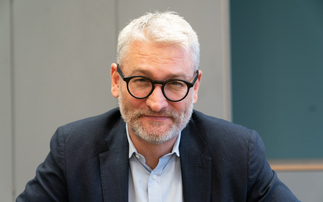Let's hope that the recession is as quick to disappear as it was to arrive, but however long it lingers we should plant for green shoots. It's much too late to design products and services for a recession.
The attitude now should be: it happened, we’ve learned from it let’s get on with the next thing which is planning ahead for the products and services we will need in two years time. By then savers will have been through redundancy, unemployment and the shock of tumbling pension balances. They will probably be facing higher taxes and they are likely to be more cautious and thinking short term rather than long term. Uppermost in their minds will be risk and the significant perils attached to investing. Even before the markets sank, 62% of DC members surveyed by Friends Provident were looking for some protection for their pensions even if that increased charges.
Default funds are a good place to start when considering how to future proof for economic cycles. Those nearing retirement may have drawn the very short straw of default structures based on 100% equities. This may be the first time that they have registered that most default funds are not actively managed by anyone. Too many members just trust that someone has their eye on the ball because they can’t quite believe they are expected to make complex decisions about funds.
There are two ways to avoid default disappointment for members: remove the misunderstanding that the fund is ‘the expert’s choice’ or make it into what members expect it to be. Having tried the former the industry is now moving towards the latter.
Significant attempts to educate members into choosing their own investments funds just haven’t made much difference; according to the NAPF 91% of scheme members are in defaults either by choice or apathy.
The way forward then is to get much better at designing the default. Post recession we should see structures that are much more aligned to members’ needs and with some flexibility to withstand economic quakes. Costs may still constrict the complexity and sophistication of defaults, but when the message finally sinks in that retirement could be a very long stretch of restricted consumption, more people may be willing to pay for advice and greater control over their investments.
Driving down costs is an entirely good thing unless it also drives out opportunity; defaults may be one of the areas where the industry and employers have to think again about improving rates of return.
Martin Palmer is head of corporate pensions marketing at Friends Provident







